Text
Y por esto existe el tan odioso solapamiento.

Post más corto y con diálogos bien metidos >>>> Una biblia de post donde hay 100 diálogos que ocurren en diferentes momentos y que no permiten que el otro pueda reaccionar bien.
#Blackbird's Domains#BB Reblog#memerolero#BB Cosas del rol#Cosas del rol#Solapamiento#Di no al solapamiento#Sé cool
12 notes
·
View notes
Text
Me muero de amor pls 💜

Somos como una fogata
Quemamos la noche bailando bachata
La gente no entiende qué rayos me pasa
Y es que contigo, mi amor, todo me sabe mejor
Bailando Bachata x Chayanne
#Blackbird's Domains#BB Reblog#laultimahijadelcaos#Kaelkoth#Chhaya Tuinstra#Yao-Ch'en#Ch'enstra#Los amo tanto que duele#Son tan monos y adorables pls
8 notes
·
View notes
Text





SEKIRO: SHADOWS DIE TWICE — [1/?]
#Blackbird's Domains#BB Reblog#itspapillonnoir#Sekiro: Shadows Die Twice#Kaelkoth#Imperio de Shinzen#Inspiración
372 notes
·
View notes
Text
JAJAJAJAJAJAJA ME AHOGO xDDDDDDDDDD.
Pobre Owy, el traumita que le ha dejado Zirian 😢
↓ hilo de reacciones a temas de kkoth ↓
#Blackbird's Domains#BB Reblog#bei-xxx#Kaelkoth#Zirian Calohan#Owena Kerdoncuff#El trauma is rial#Owy matando bestias como loca para intentar superarlo#Spoiler: NO FUNCIONARÁ
19 notes
·
View notes
Text
Types Of Writer’s Block (And How To Fix Them)
1. High inspiration, low motivation. You have so many ideas to write, but you just don’t have the motivation to actually get them down, and even if you can make yourself start writing it you’ll often find yourself getting distracted or disengaged in favour of imagining everything playing out
Try just bullet pointing the ideas you have instead of writing them properly, especially if you won’t remember it afterwards if you don’t. At least you’ll have the ideas ready to use when you have the motivation later on
2. Low inspiration, high motivation. You’re all prepared, you’re so pumped to write, you open your document aaaaand… three hours later, that cursor is still blinking at the top of a blank page
RIP pantsers but this is where plotting wins out; refer back to your plans and figure out where to go from here. You can also use your bullet points from the last point if this is applicable
3. No inspiration, no motivation. You don’t have any ideas, you don’t feel like writing, all in all everything is just sucky when you think about it
Make a deal with yourself; usually when I’m feeling this way I can tell myself “Okay, just write anyway for ten minutes and after that, if you really want to stop, you can stop” and then once my ten minutes is up I’ve often found my flow. Just remember that, if you still don’t want to keep writing after your ten minutes is up, don’t keep writing anyway and break your deal - it’ll be harder to make deals with yourself in future if your brain knows you don’t honour them
4. Can’t bridge the gap. When you’re stuck on this one sentence/paragraph that you just don’t know how to progress through. Until you figure it out, productivity has slowed to a halt
Mark it up, bullet point what you want to happen here, then move on. A lot of people don’t know how to keep writing after skipping a part because they don’t know exactly what happened to lead up to this moment - but you have a general idea just like you do for everything else you’re writing, and that’s enough. Just keep it generic and know you can go back to edit later, at the same time as when you’re filling in the blank. It’ll give editing you a clear purpose, if nothing else
5. Perfectionism and self-doubt. You don’t think your writing is perfect first time, so you struggle to accept that it’s anything better than a total failure. Whether or not you’re aware of the fact that this is an unrealistic standard makes no difference
Perfection is stagnant. If you write the perfect story, which would require you to turn a good story into something objective rather than subjective, then after that you’d never write again, because nothing will ever meet that standard again. That or you would only ever write the same kind of stories over and over, never growing or developing as a writer. If you’re looking back on your writing and saying “This is so bad, I hate it”, that’s generally a good thing; it means you’ve grown and improved. Maybe your current writing isn’t bad, if just matched your skill level at the time, and since then you’re able to maintain a higher standard since you’ve learned more about your craft as time went on
2K notes
·
View notes
Text
“Show, Don’t Tell”…But This Time Someone Explains It

If you’ve ever been on the hunt for writing advice, you've definitely seen the phrase “Show, Don’t Tell.”
Writeblr coughs up these three words on the daily; it’s often considered the “Golden Rule” of writing. However, many posts don't provide an in-depth explanation about what this "Golden Rule" means (This is most likely to save time, and under the assumption that viewers are already informed).
More dangerously, some posts fail to explain that “Show, Don’t Tell” occasionally doesn’t apply in certain contexts, toeing a dangerous line by issuing a blanket statement to every writing situation.
The thing to take away from this is: “Show, Don’t Tell” is an essential tool for more immersive writing, but don't feel like a bad writer if you can’t make it work in every scenario (or if you can’t get the hang of it!)
1. What Does "Show, Don't Tell" Even Mean?

“Show, Don’t Tell” is a writing technique in which the narrative or a character’s feelings are related through sensory details rather than exposition. Instead of telling the reader what is happening, the reader infers what is happening due to the clues they’ve been shown.
EXAMPLE 1:
Telling: The room was very cold.
Showing: She shivered as she stepped into the room, her breath steaming in the air.
EXAMPLE 2:
Telling: He was furious.
Showing: He grabbed the nearest book and hurled it against the wall, his teeth bared and his eyes blazing.
EXAMPLE 3 ("SHOW, DON'T TELL" DOESN'T HAVE TO MEAN "WRITE A LOT MORE")
Telling: The room hadn't been lived in for a very long time.
Showing: She shoved the door open with a spray of dust.
Although the “showing” sentences don’t explicitly state how the characters felt, you as the reader use context clues to form an interpretation; it provides information in an indirect way, rather than a direct one.
Because of this, “Show, Don’t Tell” is an incredibly immersive way to write; readers formulate conclusions alongside the characters, as if they were experiencing the story for themselves instead of spectating.
As you have probably guessed, “showing” can require a lot more words (as well as patience and effort). It’s a skill that has to be practiced and improved, so don’t feel discouraged if you have trouble getting it on the first try!
2. How Do I Use “Show, Don’t Tell” ?
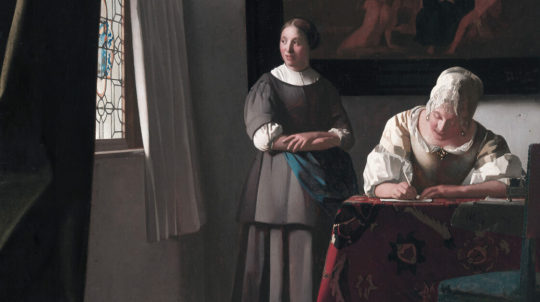
There are no foolproof parameters about where you “show” and not “tell" or vice versa; it’s more of a writing habit that you develop rather than something that you selectively decide to employ.
In actuality, most stories are a blend of both showing and telling, and more experienced writers instinctively switch between one and another to cater to their narrative needs. You need to find a good balance of both in order to create a narrative that is both immersive and engaging.
i. Help When Your Writing Feels Bare-Bones/Soulless/Boring
Your writing is just not what you’ve pictured in your head, no matter how much you do it over. Conversations are stilted. The characters are flat. The sentences don’t flow as well as they do in the books you've read. What’s missing?
It’s possibly because you’ve been “telling” your audience everything and not “showing”! If a reader's mind is not exercised (i.e. they're being "spoon-fed" all of the details), your writing may feel boring or uninspired!
Instead of saying that a room was old and dingy, maybe describe the peeling wallpaper. The cobwebs in the corners. The smell of dust and old mothballs. Write down what you see in your mind's eye, and allow your audience to formulate their own interpretations from that. (Scroll for a more in-depth explanation on HOW to develop this skill!)
ii. Add More Depth and Emotion to Your Scenes
Because "Show, Don't Tell" is a more immersive way of writing, a reader is going to feel the narrative beats of your story a lot more deeply when this rule is utilized.
Describing how a character has fallen to their knees sobbing and tearing our their hair is going to strike a reader's heart more than saying: "They were devastated."
Describing blood trickling through a character's fingers and staining their clothes will seem more dire than saying: "They were gravely wounded."
iii. Understand that Sometimes Telling Can Fit Your Story Better
Telling can be a great way to show your characters' personalities, especially when it comes to first-person or narrator-driven stories. Below, I've listed a few examples; however, this list isn't exclusive or comprehensive!
Initial Impressions and Character Opinions
If a character describes someone's outfit as "gaudy" or a room as "absolutely disgusting," it can pack more of a punch about their initial impression, rather than describing the way that they react (and can save you some words!).
In addition, it can provide some interesting juxtaposition (i.e. when a character describes a dog as "hideous" despite telling their friend it looks cute).
2. Tone and Reader Opinions
Piggybacking off of the first point, you can "tell, not show" when you want to be certain about how a reader is supposed to feel about something. "Showing" revolves around readers drawing their own conclusions, so if you want to make sure that every reader draws the same conclusion, "telling" can be more useful!
For example, if you describe a character's outfit as being a turquoise jacket with zebra-patterned pants, some readers may be like "Ok yeah a 2010 Justice-core girlie is slaying!" But if you want the outfit to come across as badly arranged, using a "telling" word like "ridiculous" or "gaudy" can help set the stage.
3. Pacing
"Show, don't tell" can often take more words; after all, describing a character's reaction is more complicated than stating how they're feeling. If your story calls for readers to be focused more on the action than the details, such as a fight or chase scene, sometimes "telling" can serve you better than "showing."
A lot of writers have dedicated themselves to the rule "tell action, show emotion," but don't feel like you have to restrict yourself to one or the other.
iv. ABOVE ALL ELSE: Getting Words on the Page is More Important!
If you’re stuck on a section of your story and just can’t find it in yourself to write poetic, flowing prose, getting words on the paper is more important than writing something that’s “good.” If you want to be able to come back and fix it later, put your writing in brackets that you can Ctrl + F later.
Keeping your momentum is the hardest part of writing. Don't sacrifice your inspiration in favor of following rules!
3. How Can I Get Better at “Show, Don’t Tell”?
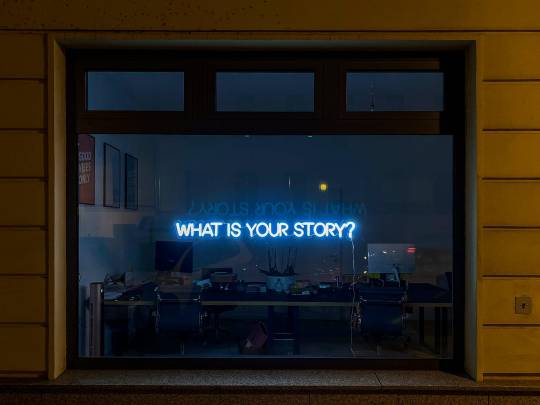
i. Use the Five Senses, and Immerse Yourself!
Imagine you’re the protagonist, standing in the scene that you have just created. Think of the setting. What are things about the space that you’d notice, if you were the one in your character’s shoes?
Smell? Hear? See? Touch? Taste?
Sight and sound are the senses that writers most often use, but don’t discount the importance of smell and taste! Smell is the most evocative sense, triggering memories and emotions the moment someone walks into the room and has registered what is going on inside—don’t take it for granted. And even if your character isn’t eating, there are some things that can be “tasted” in the air.
EXAMPLE:
TELLING: She walked into the room and felt disgusted. It smelled, and it was dirty and slightly creepy. She wished she could leave.
SHOWING: She shuffled into the room, wrinkling her nose as she stepped over a suspicious stain on the carpet. The blankets on the bed were moth-bitten and yellowed, and the flowery wallpaper had peeled in places to reveal a layer of blood-red paint beneath…like torn cuticles. The stench of cigarettes and mildew permeated the air.
“How long are we staying here again?” she asked, flinching as the door squealed shut.
The “showing” excerpt gives more of an idea about how the room looks, and how the protagonist perceives it. However, something briefer may be more suited for writers who are not looking to break the momentum in their story. (I.e. if the character was CHASED into this room and doesn’t have time to take in the details.)
ii. Study Movies and TV Shows: Think like a Storyteller, Not Just a Writer
Movies and TV shows quite literally HAVE TO "show, and not tell." This is because there is often no inner monologue or narrator telling the viewers what's happening. As a filmmaker, you need to use your limited time wisely, and make sure that the audience is engaged.
Think about how boring it would be if a movie consisted solely of a character monologuing about what they think and feel, rather than having the actor ACT what they feel.
(Tangent, but there’s also been controversy that this exposition/“telling” mindset in current screenwriting marks a downfall of media literacy. Examples include the new Percy Jackson and Avatar: The Last Airbender remakes that have been criticized for info-dumping dialogue instead of “showing.”)
If you find it easy to envision things in your head, imagine how your scene would look in a movie. What is the lighting like? What are the subtle expressions flitting across the actors' faces, letting you know just how they're feeling? Is there any droning background noise that sets the tone-- like traffic outside, rain, or an air conditioner?
How do the actors convey things that can't be experienced through a screen, like smell and taste?
Write exactly what you see in your mind's eye, instead of explaining it with a degree of separation to your readers.
iii. Listen to Music
I find that because music evokes emotion, it helps you write with more passion—feelings instead of facts! It’s also slightly distracting, so if you’re writing while caught up in the music, it might free you from the rigid boundaries you’ve put in place for yourself.
Here’s a link to my master list of instrumental writing playlists!
iv. Practice, Practice, Practice! And Take Inspiration from Others!
“Show Don’t Tell” is the core of an immersive scene, and requires tons of writing skills cultivated through repeated exposure. Like I said before, more experienced writers instinctively switch between showing and telling as they write— but it’s a muscle that needs to be constantly exercised!
If I haven’t written in a while and need to get back into the flow of things, I take a look at a writing prompt, and try cultivating a scene that is as immersive as possible! Working on your “Show, Don’t Tell” skills by practicing writing short, fun one-shots can be much less restrictive than a lengthier work.
In addition, get some inspiration and study from reading the works of others, whether it be a fanfiction or published novel!
If you need some extra help, feel free to check out my Master List of Writing Tips and Advice, which features links to all of my best posts, each of them categorized !
Hope this helped, and happy writing!
2K notes
·
View notes
Text
Gentecilla hermosa de @kaelkoth, os pido perdón por la tardanza en responder. Aún tardaré en postear porque estoy en el proceso de pre-mudanza (que es básicamente estar histérica 24/7 esperando a que me den el visto bueno final y me envíen el contrato + ir haciendo limpieza). Intentaré dejar algún post cuando me de la cabeza, pero eso, soy una tortuga rolera ahora mismo.
¡Gracias por la comprensión! 💜
11 notes
·
View notes
Photo

Casey // Little Bird
1K notes
·
View notes
Text
Es que mira este nivel de detalle, esta belleza... El amor y mimo que le pusieron a este juego no es ni medio normal. Lo siento, Ronin, pero te quedas muuuuuuy corto. Siempre estarás a la sombra del Ghost of Tsushima.




GHOST OF TSUSHIMA
➔ scenery ♾��
#Blackbird's Domains#BB Reblog#itspapillonnoir#Ghost of Tsushima#Mi marido Jin Sakai le da mil vueltas al prota de Ronin#Sorry not sorry#Ronin no está mal pero es que las comparaciones son odiosas#Tsushima forevah
1K notes
·
View notes
Text

18K notes
·
View notes
Text
Puedo escuchar a Yao diciendo esto 🤎
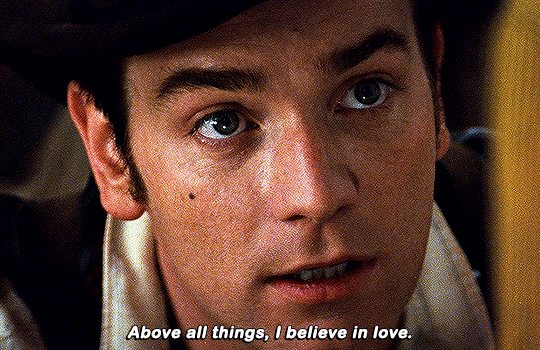


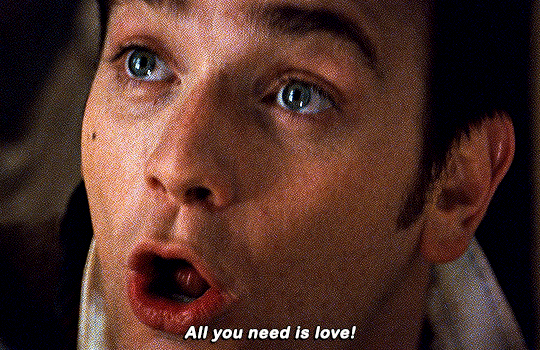
Moulin Rouge! (2001) dir. Baz Luhrmann
1K notes
·
View notes
Text
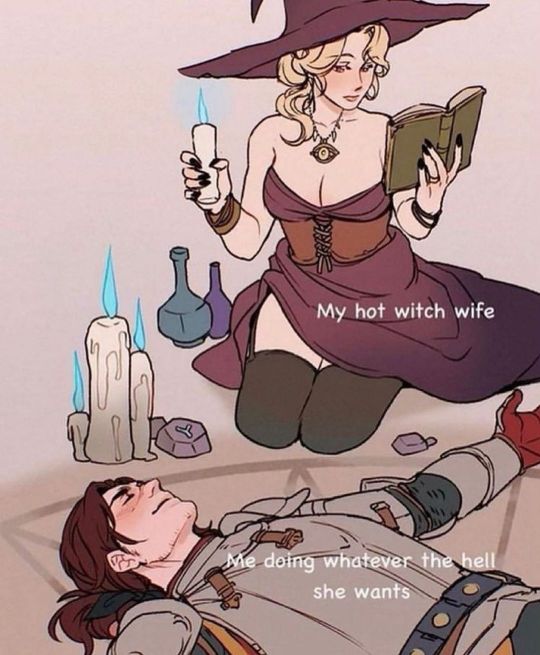
9K notes
·
View notes
Text
Jajajajaja.

426 notes
·
View notes
Text
JAJAJAJAJA. ¿Pero los fantasmas no levitan? 😂
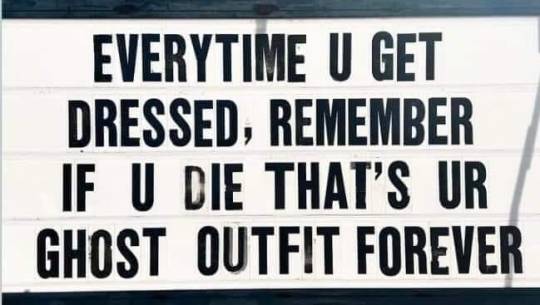
5K notes
·
View notes
Text
¿Y lo cómoda que voy a estar en el otro lado en pijama, qué? xDDD.

5K notes
·
View notes
Text
I know I will.

16K notes
·
View notes
Note
Esto me ha volado un poco la cabeza. Recuerdo que cuando empecé a investigar qué era esto del rol por foro, me lo explicaron un poco así: «tú te creas un personaje y escribes como si fueras él, interactuando con otros personajes» (o algo así, han pasado 800 años de eso y mi memoria de pez muerto es limitada xd).
Es decir, que todo tendía a ser subjetivo. Sumándole la inmadurez propia de la edad, por supuesto, quizá es tener esa definición de antemano lo que suma para que se formen los conflictos que -lamentablemente- seguimos viendo que suceden cada día. Porque si algo malo le pasaba a mi personaje, u otro personaje le hacía daño, yo sufría como si lo tuviera en carne propia. Recuerdo que hasta me puse celosa porque mi novio de entonces roleaba con mi amiga y tenían trama amorosa. Porque «yo era mi personaje». Lo dicho: súmale a ese concepto una mentalidad de quinceañera que tenía por entonces y te sale lo que se ve tanto en el rol: toxicidad. Creo que todos hemos pasado por alguna fase de tóxicos/as, y es porque no ponemos el enfoque en lo importante: en escribir.
No somos nuestros personajes.
Los demás no son sus personajes.
No somos roleros. Somos escritores.
Y la diferencia entre los dos conceptos es abismal.
Una vez dejé de «hacer roleplay» y comencé a escribir, dejé esas actitudes tóxicas atrás (la madurez también tuvo que ver en cuanto a esto, claro). Empecé a crear personajes más complejos y ricos, que me dieran un amplio abanico de opciones. Escribía más y mejor. Comencé a salir de mi zona de confort para escribir cosas que no me había atrevido antes. Me di cuenta de que disfrutaba de las historias que eran impredecibles y que tenían giros inesperados. De que me encantaba hacer sufrir a mis personajes y disfrutaba cada tormentoso camino que siguieran, porque ya no eran yo.
Pero no fue hasta leer este ask que me llegó la explicación de esto.
Ahora que sé lo que es escribir, ni de broma volvería al roleplay. Escribir es más sano y coherente ♥
Rolplaying o juego de roles, consiste en asumir o interpretar el papel de un determinado personaje. Ahora que lo pienso, creo que al comienzo de mi vida rolera, sí lo hacía, pero en algun punto dejé de rolear, ahora solo escribo personajes e historias. Lo que no es menos, pero sí completamente distinto. No es lo mismo rolear un asesino que escribirlo como un personaje independiente. Ahora entiendo porque hace unos años se veía tan polémicamente rolear +18, se supone que eres tú viviendo viviendo ese papel, y desde esa vista si causa una gran impresión saber que se disfrutan ciertas temáticas, pero no me pondré a juzgar. ¿Ustedes rolean o solo escriben?
Ambas (?)
✶✯╰☆╮ ︻╦̵̵͇̿̿̿̿╤── ☠ ~ JINX ~ ☠
#Blackbird's Domains#BB Reblog#Guardianas del RPG#Rolear Vs Escribir#Cosas del rol#BB Cosas del rol#Como la vida misma
14 notes
·
View notes